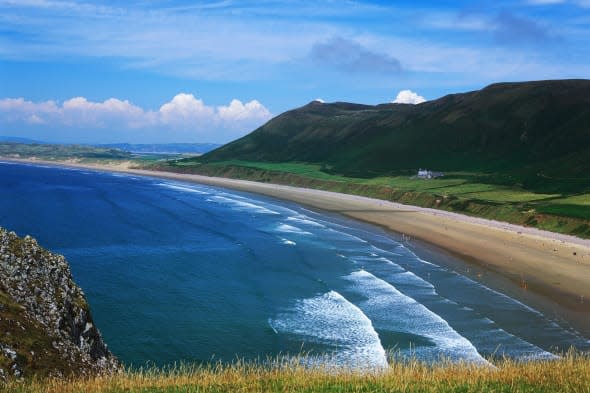Driest summer in a decade boosts UK sea water quality

The driest summer in a decade has improved sea water quality in a number of UK bathing beaches.
A record number of UK beaches achieved top water quality awards from a marine charity.
The Marine Conservation Society (MCS) said that last year's dry summer - the driest since 2003 - has resulted in more bathing beaches than ever being "recommended" for their excellent water quality in its annual Good Beach Guide. Source: Press Association
The MCS rated 538 out of 734 (73%) UK beaches tested during last summer as having excellent water quality - 135 more than the previous year.
There were also fewer failures, with just 14 beaches tested last summer failing to reach minimum water quality standards.
In the North East and South East of England, Scotland and Northern Ireland there were no failures at all, meaning all monitored beaches reached minimum bathing water standards.
MCS coastal pollution officer Rachel Wyatt said she hoped the latest figures would be a boost to UK tourism after several previously wet summers led to a drop in bathing water quality caused by pollution running into the sea and overloaded sewers.
Ms Wyatt said: "It's great news that we are able to recommend more beaches than ever for excellent water quality and it shows just how good British beaches can be.
"The main challenge now is maintaining these standards, whatever the weather.
"Most people don't realise what a big impact the weather can have on bathing water quality, but this has really been highlighted in the last few years.
"2008, 2009 and 2012 were, according to the Met Office, amongst the wettest summers on record since 1910, and fewer UK bathing waters met minimum and higher water quality standards because of increased pollution running off rural and urban areas and overloaded sewers."
By the end of the 2015 bathing season, all designated bathing waters must meet the new minimum "sufficient" standard under the revised EU bathing water directive.
This will be twice as stringent as the current minimum standard and means that some beaches will need to do more to make the grade in the future, such as include reducing pollution from sewage discharges, agricultural run-off and urban diffuse pollution, fixing mis-connected sewers and putting in place more steps to help dog owners clean up after their pets.
Beaches which do not meet the "sufficient" standard at the end of 2015 will have to display signs warning against bathing in the sea from the start of the bathing season in 2016.
This year more than 160 English and Welsh beaches featured on www.goodbeachguide.co.uk will be linked to the Environment Agency's daily pollution forecast which will indicate when there may be an increased risk of pollution due to heavy rainfall.
The MCS is calling on bathers and beachgoers to vote with their feet by bathing only at beaches recommended in the Good Beach Guide in order to maintain pressure on water companies, environmental regulators and local councils to tackle the sources of bathing water pollution.
Related stories
Welsh beach voted best in Britain
Where is Europe's cleanest swimming beach?
Is this the best beach in Britain?





